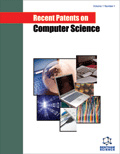Abstract
Distributed systems have become increasingly common because they offer significant computational power and are cost-effective and scalable. Moreover, collaboration between users that are part of these distributed systems improves efficiency and effectiveness for a better utilization of this computational power. Due to this, new specific collaboration models for distributive systems are needed for enabling effective collaboration between users of these dynamic environments. This paper presents AMBAR, an awareness-based learning model for distributed environment with some patent literature related with learning and collaboration systems. AMBAR allows nodes to accomplish an effective collaboration by means of a multi-agent architecture in which agents are aware of its surroundings by means of a parametrical and flexible use of this information. This approach makes use of heuristic strategies to improve effectiveness and efficiency of collaboration in these environments. Results presented in this paper prove this assertion.
Keywords: Awareness, collaboration, distributed system, efficiency, effectiveness, learning, multi-agent system
 6
6













